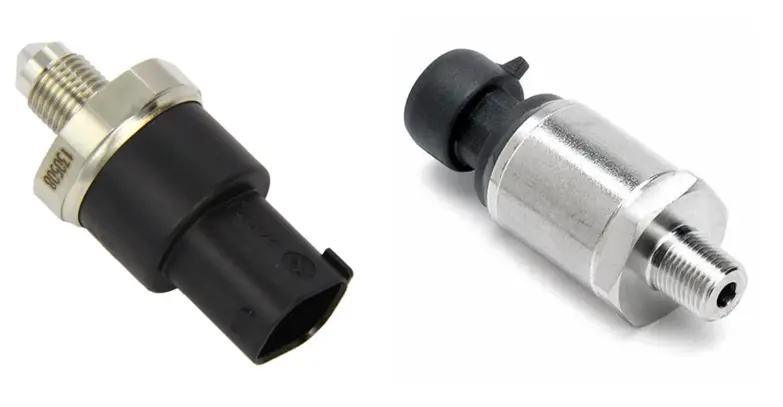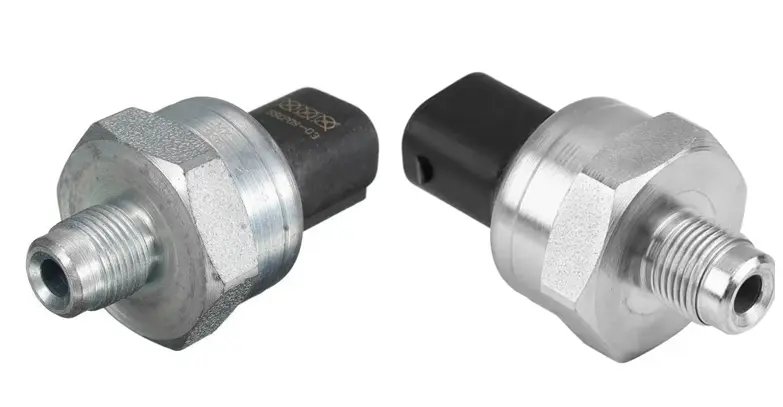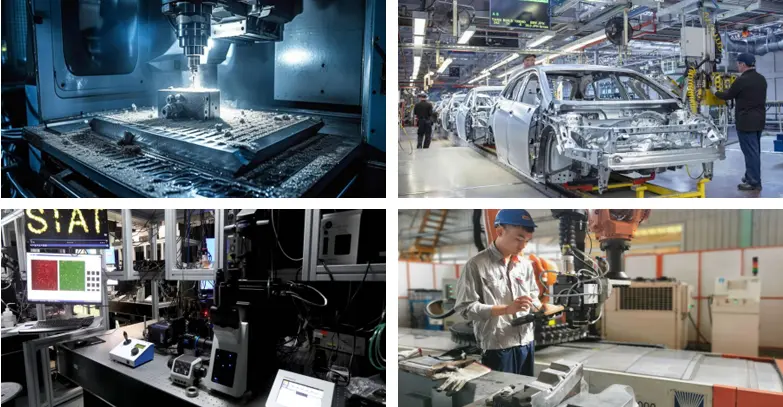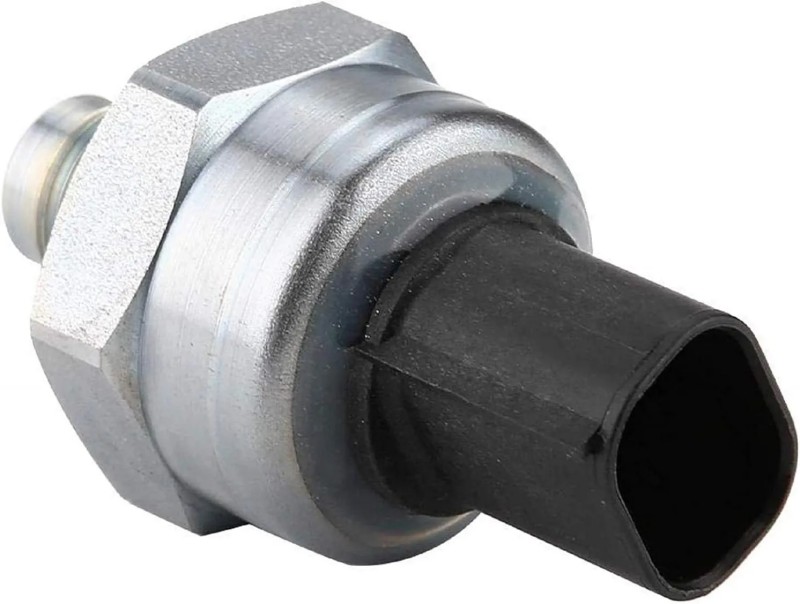
Hanlinrui is a leading China brake pressure sensor manufacturer. In order to ensure efficient and stable production and supply, and meet your purchase orders of different sizes, Hanlinrui has invested heavily in the introduction of a series of international leading finishing equipment. Hanlinrui can not only efficiently handle the urgent delivery of large orders, but also provide flexible and fast production services for small batches and customized needs, and truly become the best choice for your purchase list.
Brake pressure sensors are the core "little guards" of the car's braking system. When you step on the brakes, brake pressure sensors are immediately keenly aware of the pressure changes in the brake line, and with their superb "sensing skills", the pressure value is instantly converted into a fine electrical signal and transmitted to the electronic control unit, escorting the vehicle for stable and safe braking, which can be called the big hero behind the driving safety.

|
Specification Parameter |
Symbol/Unit |
Common Specification Range |
Description |
|
Measurement Range |
MPa |
0-2.5, 0-10, 0-20 |
The range of pressure the sensor can measure |
|
Accuracy |
±%FS |
±1, ±0.5 |
Percentage error relative to full scale |
|
Resolution |
MPa |
0.01-0.1 |
The smallest change in pressure the sensor can detect |
|
Response Time |
ms |
≤10, ≤5 |
The time it takes for the sensor to respond to a pressure change |
|
Operating Temperature Range |
°C |
-40 to +125 |
The temperature range in which the sensor operates normally |
|
Ingress Protection Rating |
IP Rating |
IP67, IP69K |
The sensor’s level of protection against dust and water |
|
Electrical Connection |
|
2-wire, 3-wire |
The type of electrical connection to the vehicle’s electrical system |
● Precise braking: Real-time and accurate monitoring of braking pressure changes, converted into electrical signals transmitted to the ECU, so that the vehicle braking smoothly and accurately.
● Adaptable to multiple systems: Provide accurate data during emergency braking to help it operate efficiently and maintain stable vehicle handling.
● Performance optimization: Dynamically adjust braking parameters according to driving conditions to improve braking efficiency and shorten braking distance.
● Reliable and durable: high sensitivity, strong accuracy, not afraid of -40°C to 130°C temperature difference, high pressure and harsh environment, long-term stable monitoring.
● Convenient maintenance: real-time self-inspection, can quickly detect brake failures and early warning, and also provide a variety of selection, taking into account cost and demand, and reducing maintenance costs.

|
High-quality raw materials |
Our products use high-quality raw materials that have been carefully screened to ensure the quality and safety of the final product. |
|
Advanced technology |
The latest processing technology and equipment are used to ensure the finishing level and consistency of the products. |
|
Quality Control |
Implement a strict quality control process to ensure that every product meets high standards. |
|
Customized service |
Provide customized service to adjust product specifications and formulas according to customer needs. |
|
Innovative R&D |
Continue to invest in R&D and continuously launch innovative products to meet new market needs. |

|
Steps |
Details |
|
Pre - preparation |
Park the vehicle in a flat and safe area, pull the handbrake, and prepare common tools such as wrenches and pliers, as well as a suitablebrakepressuresensor. |
|
Locate the Position |
Refer to the vehicle manual to identify the exact installation site of thebrakepressuresensor on the master brake cylinder, brake lines, or related components. |
|
Release the Pressure |
Slowly open the cover of the brake fluid reservoir and use a syringe or other tools to extract an appropriate amount of brake fluid to prevent pressure shock during disassembly. |
|
Remove the Old Part |
Carefully disconnect the electrical connection plug of the sensor, use appropriate tools to unscrew the fixing bolts, and smoothly remove the old sensor. |
|
Install the New Part |
Apply a small amount of sealant to the thread of the new sensor, insert it accurately into the installation position, tighten the bolts to an appropriate tightness, and connect the electrical plug well. |
|
Subsequent Debugging |
Add brake fluid to the standard level, bleed the brake lines in sequence, start the vehicle and test the braking effect to ensure it is normal. |
Q: Can the sensor be used in passenger cars and commercial vehicles?
A: Yes, but you should confirm compatibility with your specific vehicle type before purchasing.
Q: How accurate is the brake pressure sensor?
A: Accuracy is typically between ±1% and ±0.5% of full scale, ensuring reliable pressure readings.
Q: What is the response time of the sensor?
A: The response time is usually less than 10 milliseconds, but some sensors can respond within 5 milliseconds.
Q: How to install the product?
A: We provide a detailed installation guide, you can also contact our customer service for installation assistance.
Q: How long does it take to ship after purchase?
A: We will ship the goods as soon as the order is confirmed. If you need it urgently, we will expedite it.
